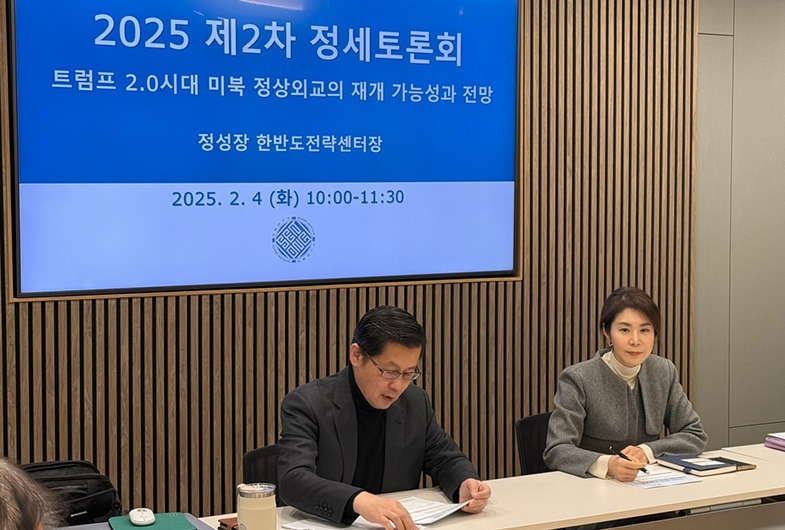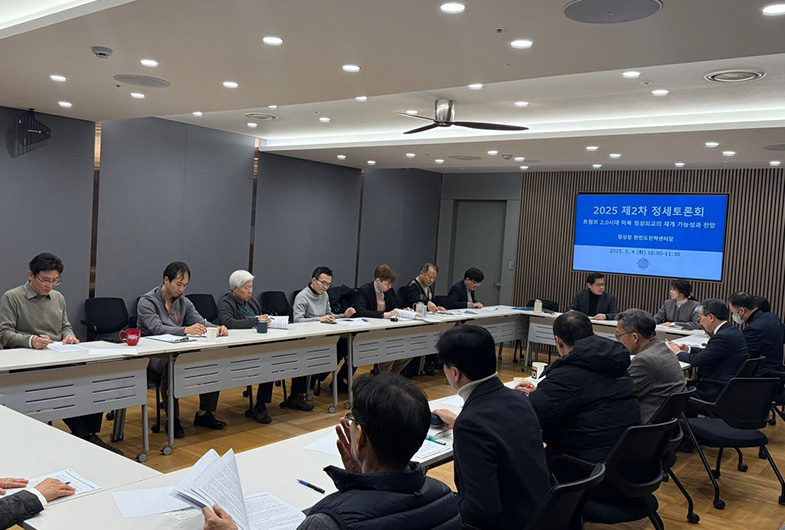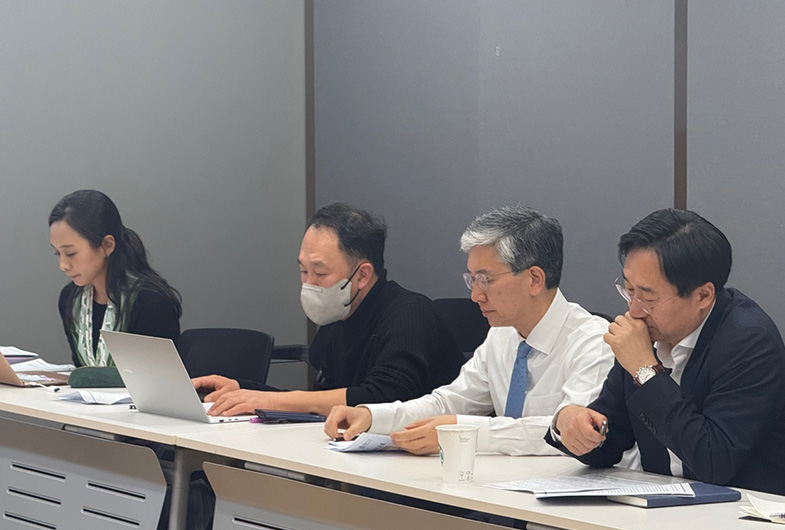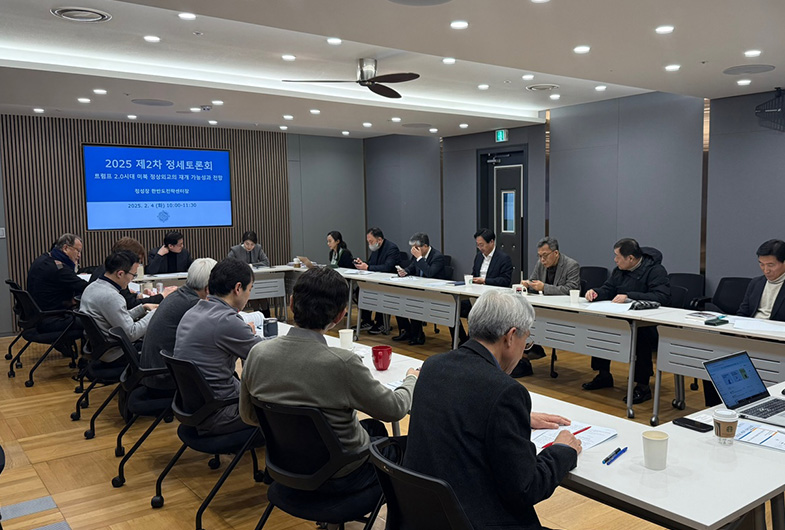On February 4, Senior Research Fellow Seong Chang Cheong gave a presentation titled "The Possibility and Prospects of Resuming U.S.-North Korea Summit Diplomacy in the Trump 2.0 Era."
The discussion was moderated by Vice President Yoon Jung Choi and proceeded as follows:
Following Donald Trump’s victory in the 2024 U.S. presidential election, he has consistently expressed his willingness to resume summit diplomacy with North Korean leader Kim Jong-un. This raises the question of whether North Korea will respond positively to his overtures.
Looking at North Korea’s foreign policy pattern since Kim Jong-un took power, the country has tended to adopt a hardline stance but then abruptly switch to a conciliatory approach when deemed necessary. If the conciliatory policy fails to yield the desired results, North Korea tends to revert to a hardline stance once again. Therefore, while North Korea currently appears negative toward the resumption of Trump-Kim summit diplomacy, it may change its stance and actively engage in diplomatic efforts if it perceives such a move as beneficial to its interests.
If Trump and Kim Jong-un meet again, they might agree on a freeze of North Korea’s nuclear program and a partial easing of sanctions. However, reaching such a meeting would likely take considerable time. Currently, North Korea is focusing all its efforts on expanding military and economic cooperation with Russia. Through arms and ammunition exports, troop deployments, and labor dispatches, North Korea has been able to earn significant foreign currency and acquire advanced military technology from Russia. As a result, Pyongyang currently perceives greater benefits in strengthening ties with Moscow rather than improving relations with Washington.
In 2024, skepticism regarding the possibility of North Korea’s denuclearization has significantly increased within the U.S. and the international community. This has led to the omission of the term "North Korean denuclearization" from both the Democratic and Republican party platforms as well as from joint statements between South Korea and the U.S. Most importantly, given North Korea’s uncompromising stance on indefinitely strengthening its nuclear capabilities, if President Trump proposes resuming negotiations with the goal of "complete denuclearization of North Korea," Kim Jong-un is highly unlikely to accept the offer.
However, if Kim Jong-un were to engage in early dialogue with the U.S., he might take advantage of South Korea’s political turmoil caused by the martial law incident and persuade the Trump administration to suspend joint U.S.-South Korea military exercises, given Seoul’s inability to actively engage in talks with Washington at this time.



